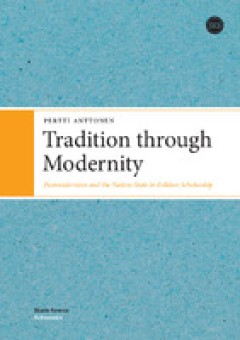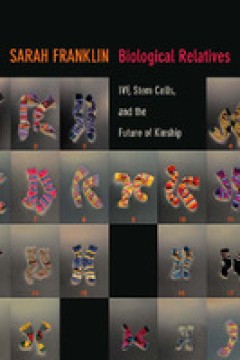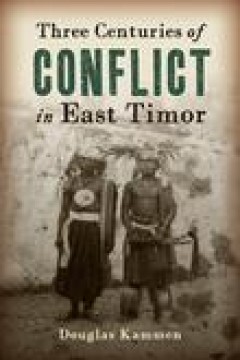Filter by
# Debug Box
/var/www/htdocs/pustaka-digital/lib/SearchEngine/SearchBiblioEngine.php:688 "Search Engine Debug 🔎 🪲"
Engine Type ⚙️: "SLiMS\SearchEngine\SearchBiblioEngine"
SQL ⚙️: array:2 [ "count" => "select count(sb.biblio_id) from search_biblio as sb where sb.opac_hide=0 and ((match (sb.topic) against (:subject in boolean mode)))" "query" => "select sb.biblio_id, sb.title, sb.author, sb.topic, sb.image, sb.isbn_issn, sb.publisher, sb.publish_place, sb.publish_year, sb.labels, sb.input_date, sb.edition, sb.collation, sb.series_title, sb.call_number from search_biblio as sb where sb.opac_hide=0 and ((match (sb.topic) against (:subject in boolean mode))) order by sb.last_update desc limit 10 offset 100" ]
Bind Value ⚒️: array:1 [ ":subject" => "'+\"Anthropology\"'" ]

Tradition through modernity: postmodernism and the nation-state in folklore s…
"In their study of social practices deemed traditional, scholars tend to use the concept and idea of tradition as an element of meaning in the practices under investigation. But just whose meaning is it? Is it a meaning generated by those who study tradition or those whose traditions are being studied? In both cases, particular criteria for traditionality are employed, whether these are explica…
- Edition
- -
- ISBN/ISSN
- 9789522228147
- Collation
- 215p.: ill.
- Series Title
- -
- Call Number
- 398 ANT t

Biological relatives : IVF, stem cells and the future of kinship
Thirty-five years after its initial success as a form of technologically assisted human reproduction, and five million miracle babies later, in vitro fertilization (IVF) has become a routine procedure worldwide. In Biological Relatives, Sarah Franklin explores how the normalization of IVF has changed how both technology and biology are understood. Drawing on anthropology, feminist theory, and s…
- Edition
- -
- ISBN/ISSN
- 9780822354994
- Collation
- X, 364 p.
- Series Title
- Experimental Futures,
- Call Number
- 618.1780599 FRA b

Man or monster?: the trial of Khmer rouge torturer
During the Khmer Rouge's brutal reign in Cambodia during the mid-to-late 1970s, a former math teacher named Duch served as the commandant of the S-21 security center, where as many as 20,000 victims were interrogated, tortured, and executed. In 2009 Duch stood trial for these crimes against humanity. While the prosecution painted Duch as evil, his defense lawyers claimed he simply followed orde…
- Edition
- -
- ISBN/ISSN
- 9780822373551
- Collation
- viii, 350p.: ill.
- Series Title
- -
- Call Number
- 345.0235 HIN m
Responding to the west: essays on colonial domination and Asian agency
The nine essays of this volume, spanning from the eighteenth to mid-twentieth century, highlight the workings of, and reactions to, colonial domination in Asian contexts. The scholars, which include Victoria Haskins of the University of Newscastle, use a range of social science history methods to explore new paths to colonial history. How were individuals, groups, and social categories able to …
- Edition
- -
- ISBN/ISSN
- 9789048508204
- Collation
- 181 p. : ill., map ; 24 cm.
- Series Title
- ICAS publication series. 5
- Call Number
- 325.3095 RES r

Care in healthcare : reflections on theory and practice
This book examines the concept of care and care practices in healthcare from the interdisciplinary perspectives of continental philosophy, care ethics, the social sciences, and anthropology. Areas addressed include dementia care, midwifery, diabetes care, psychiatry, and reproductive medicine. Special attention is paid to ambivalences and tensions within both the concept of care and care practi…
- Edition
- -
- ISBN/ISSN
- 9783319612911
- Collation
- xi, 298p. : ill.
- Series Title
- -
- Call Number
- 610.1 CAR c

The Web as history: using web archives to understand the past and the present
This article puts on the agenda one of the fundamental theoretical questions within the emerging field of website history: how can the object of historical study — the website — be delimited? Its focus is on the 'website' artefact as a medium and a text. After elaborating a definition of the website, as well as discussing how the website is distinct from other possible analytical web object…
- Edition
- -
- ISBN/ISSN
- 9781911307563
- Collation
- 296 p.; 22 cm.
- Series Title
- -
- Call Number
- 310 BRU w

Why do we quote?: the culture and history of quotation
Quoting is all around us. But do we really know what it means? How do people actually quote today, and how did our present systems come about? This book brings together a down-to-earth account of contemporary quoting with an examination of the comparative and historical background that lies behind it and the characteristic way that quoting links past and present, the far and the near. Drawing f…
- Edition
- -
- ISBN/ISSN
- 9781906924355 (pdf)
- Collation
- 1 online resource (xvi, 327 pages)
- Series Title
- -
- Call Number
- 808 FIN w

Three centuries of conflict in East Timor
One of the most troubling but least studied features of mass political violence is why mass violence often recurs in the same place over long periods of time. Douglas Kammen explores this pattern in Three Centuries of Conflict in East Timor, studying East Timor’s tragic past, and focusing on the small district of Maubara. This book combines an archival trail and rich oral interviews to recons…
- Edition
- -
- ISBN/ISSN
- 9780813574103
- Collation
- -
- Series Title
- Genocide, Political Violence, Human Rights
- Call Number
- 340 KAM t

history of anthropology
his is a thoroughly updated and revised edition of a popular classic of modern anthropology. Avoiding geographical bias, the authors provide summaries of ‘Enlightenment’, ‘Romantic’ and ‘Victorian’ anthropology, from the cultural theories of Morgan and Taylor to the often neglected contributions of German scholars. The ambiguous relationship between anthropology and national culture…
- Edition
- Second edition.
- ISBN/ISSN
- 9781849649186
- Collation
- x, 254 pages ; 23 cm.
- Series Title
- Anthropology, culture and society
- Call Number
- 306.09 ERI h

Divided loyalties: displacement, belonging and citizenship among East Timores…
Drawing on extensive ethnographic fieldwork, this study explores the ideas of belonging and citizenship among former pro-autonomy East Timorese who have elected to settle indefinitely in West Timor. The study follows different East Timorese groups and examines various ways they construct and negotiate their socio-political identities following the violent and destructive separation from their h…
- Edition
- -
- ISBN/ISSN
- 9781760462376
- Collation
- xvi, 204p.: ill.
- Series Title
- -
- Call Number
- 959.87032 DAM d
 Computer Science, Information & General Works
Computer Science, Information & General Works  Philosophy & Psychology
Philosophy & Psychology  Religion
Religion  Social Sciences
Social Sciences  Language
Language  Pure Science
Pure Science  Applied Sciences
Applied Sciences  Art & Recreation
Art & Recreation  Literature
Literature  History & Geography
History & Geography